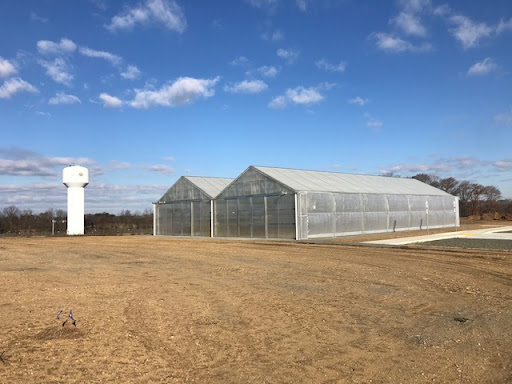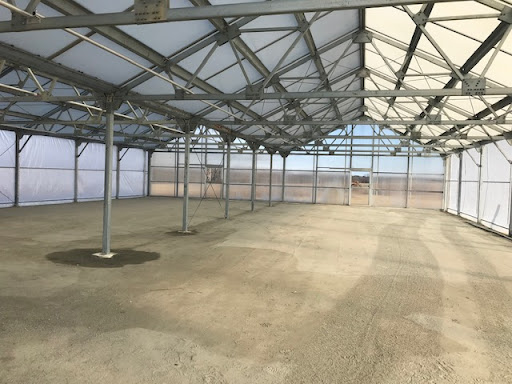Regenerative Food Systems
Regenerative Food Systems
Regenerative Food Systems

By Emily Riley, Master Lecturer and Director, Regenerative Food Systems
This Fall 2022, the School of Earth and Environment’s Regenerative Food Systems (RFS) program curriculum was submitted into an internal/external series of reviews, iterations, and approvals. The present-day intent is for a Fall 2023 student admissions start-up with course offerings (pending local and state approvals). Additionally, the RFS program has furthered plans for a farm, greenhouse, and culinary workshop on campus to support the program’s student learning goals, experiences, and outcomes. I’d like to extend an enormous ‘thank you’ to Facilities who contributed to the construction of the West Campus Greenhouse this Fall as part of the execution of these plans:
The Regenerative Food Systems (RFS) program is being developed as an interdisciplinary academic and experiential learning opportunity for students to engage in:
-
- Studies of our current food system(s) in the US and globally from growing to consumption across local, regional, national, and global distribution and access in order to consider the direct/indirect impacts this system has on the environment, economy, and social and human health. Students will study systems thinking and ethics to develop effective solutions to our food system driven by inclusion, equity, and resilience in the context of regenerative and sustainability principles which address climate change and biodiversity loss;
- Planting, growing, cultivating, and harvesting whole, nutrient dense food leveraging regenerative agricultural practices (integration of no-till, cover crops, animals, composting, wildflower beds, and other regenerative methods) fostering soil health while connecting these practices and foods with our community from an on-campus farm, greenhouse, and culinary (food preparation) workshop;
- Putting to practice regenerative food systems principles and practices as part of internship/externship opportunities designed for new learning and growth from real-world applications while fostering leadership development skills and post-graduation pathways.
The anticipated launch of the RFS program in Fall 2023 (pending approvals) for student enrollment will initially consist of a Bachelor of Arts degree (with a 2+2 degree completion option) along with a Certificate of Undergraduate Studies (CUGS). In early Spring 2023, there will be more information about the learning goals, objectives, and course plan along with an opportunity for students to directly express interest.

The Regenerative Food Systems program began with the formulation of a vision in 2020 out of the Geography, Planning, and Sustainability Department led by Megan Bucknum, Senior Lecturer and supported by Dr. Mahbubur Meenar, Associate Professor and Dr. Eddie Guerra, Associate Dean of the School of Earth and Environment. This 2020 vision was advanced into foundational concepts which were influenced by other professors and students across Rowan University, and which led to the establishment of a program director to further the concepts into existence. I’d like to extend an enormous ‘thank you’ to all those involved in this work. It can be exceedingly demanding to develop an idea into a plan and execute on it, especially in the context of one’s day-to-day responsibilities. As a result of this work, the RFS program is becoming a reality.
While the RFS program will be independent within the School of Earth and Environment, it is an interdisciplinary program and includes teaching, service, and leadership from multiple University departments across campus. Furthermore, the emerging RFS program will be far more than purely an academic program with a farm, greenhouse, and culinary workshop; it is an invitation to our whole community broadly to engage in learning, growing, and regenerating our food system together.